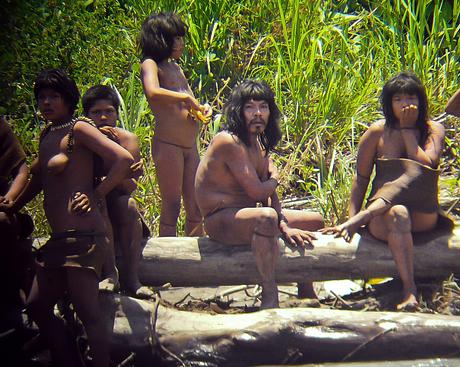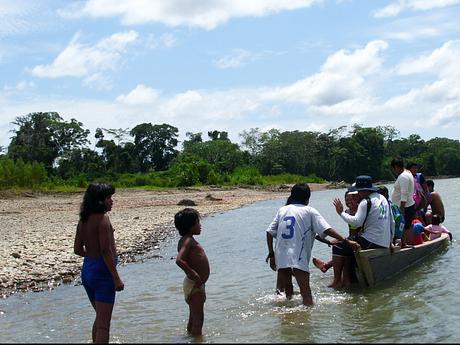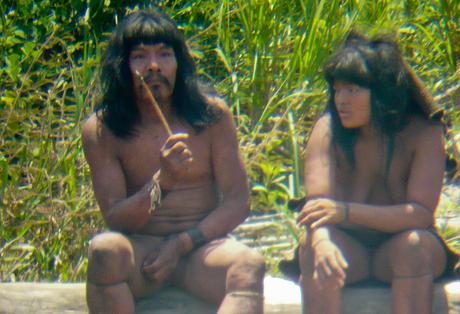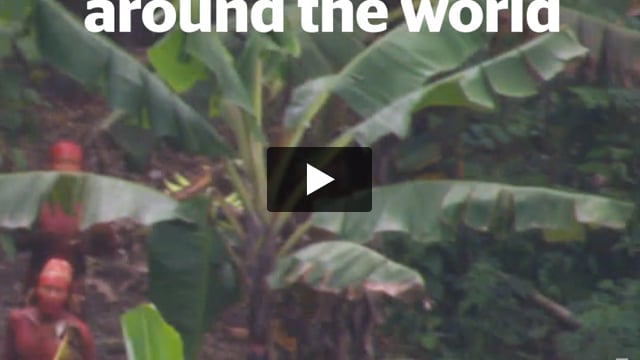Peru to initiate dialogue with uncontacted tribe
July 30, 2015
 © Jean-Paul Van Belle
© Jean-Paul Van BelleThis page was last updated in 2015 and may contain language which is now outdated.
The Peruvian government has announced plans to initiate dialogue with a group of uncontacted Mashco-Piro Indians who have been put at great risk by sporadic contact with outsiders.
The plans follow increased sightings of a group of around 30 Indians on the fringes of the Manu National Park in Peru’s southeastern Amazon rainforest. Local Yine Indians, who speak a similar language to the Mashco-Piro, will attempt communication with the tribe.
Survival International, the global movement for tribal peoples’ rights, takes the following position on the initiative:
Where members of a tribal people initiate contact, the country’s government has an obligation to react swiftly and decisively to try and reduce the very high risk of loss of life. There are two broad requirements:
1) Where not already in place due to contact being expected, expert medical teams and auxiliaries must travel to the area immediately after an appropriate quarantine period, and be trained and equipped to attend to the particular circumstances prevailing in early contact situations. They must remain in situ on a long-term basis but care must be taken not to encourage the tribal people to become dependent.
This requirement, though basic, is unlikely to be properly fulfilled.
2) The tribe’s land must be protected for its ownership and use, and its boundaries policed to prevent incursions by unauthorized people. The latter must also be kept away if tribespeople have voluntarily left the borders of their own land.
Contact must not be initiated by anyone other than the tribe in question, as nearly all contacts result in loss of life.
 © Jaime Corisepa/FENAMAD
© Jaime Corisepa/FENAMAD
Tourists and missionaries have come into close proximity with the Indians and have left clothes, food, fizzy drinks and even beer for the Mashco-Piro – putting them at extreme risk of catching diseases to which they have no immunity. In May, the tribe came into violent conflict with a local Indigenous community.
Survival has been urging the Peruvian government to uphold the Mashco-Piro’s right to their land and prevent the invasion of outsiders since the 1990s, but its response has been slow and inadequate. Now the situation has reached crisis point.
Survival has further condemned calls for "controlled contact" – promulgated by U.S. anthropologists Robert Walker and Kim Hill in Science magazine – as it risks leading to forced contact between other uncontacted groups and outsiders.
A second, larger and apparently healthy, group of Mashco-Piro has been making headlines by coming out of their forest and asking a settled Indigenous community for goods. However, while some uncontacted tribes choose to make sporadic contact with other Indigenous groups for trade, this does not translate as a desire to be settled or make sustained contact with mainstream society.
Survival’s Director Stephen Corry said, “Land rights are the key to preventing Amazon tribes being annihilated – all uncontacted tribal peoples face catastrophe unless their land is protected. The Mashco-Piro’s land rights are enshrined in both national and international law and whether or not the tribe survives contact will largely be determined by the extent to which these rights are respected.”




